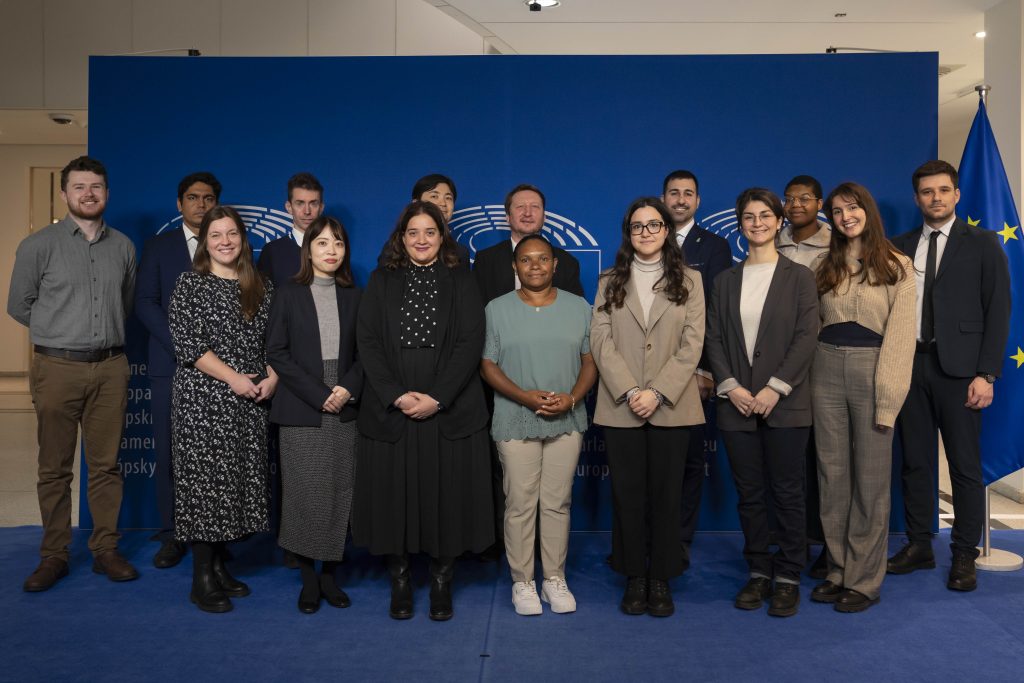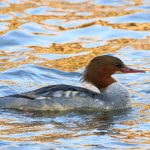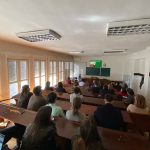Last week, Arta Starova, along with other participants from India, Japan, Serbia, and Papua New Guinea, took part in the European Union Visitors Programme (EUVP) in Brussels. The visit consisted of an individual five-day programme of meetings with various representatives from EU institutions. The main topics of Arta’s visit were environmental crime, corruption, and sustainable management of natural resources.
From an environmental perspective, meetings were held with representatives from the Directorate-General for Environment, a member of the Cabinet of the European Commissioner for Environment, Ms. Jessica Rosvol, who focuses on environment, water resilience, and a competitive circular economy, as well as members of the European Free Alliance. Additionally, Arta met with the assistant of MEP Mr. Vigenin, who is a member of the European Parliament’s Committee on Environment, Public Health and Food Safety, among other committees and delegations. The revised Environmental Crime Directive (2024/1203) was discussed, which includes more specific measures to combat these criminal activities, such as the use of special investigative measures for more serious environmental crimes. Furthermore, alongside other key environmental topics, the main priorities for the upcoming period include sustainable water and waste management.
Moreover, a meeting with the Directorate-General for Parliamentary Research Services provided a detailed overview of the process of proposing amendments or additions to existing EU legislation by the Commission, the implementation of analyses, and the eventual adoption of the proposal. It is crucial to understand the role of conflicting political wills throughout this process. High-quality research is essential for credible arguments, and this was a topic of discussion during the meeting with representatives from the Directorate-General for Innovation and Research, the sector responsible for implementing the Horizon Europe research and innovation programme.
Globally, corruption is one of the main drivers of environmental crime, and in many countries, including ours, it poses a significant obstacle to the development of key areas such as environmental justice and human rights. During meetings with one of the corruption experts from the Directorate-General for Migration and Home Affairs, as well as with the international non-governmental organisation Transparency International, current trends in corruption in EU member states were discussed, along with opportunities for the non-governmental sector to report cases and work more on this issue. The difficulty in defining and proving corruption often hinders direct efforts to combat it, but it affects everyone and should be addressed as a critical element in the fight for enhanced environmental protection.
Meetings with representatives from the Directorate-General for External Relations and the Directorate-General for Neighbourhood and Enlargement Negotiations provided a detailed overview of North Macedonia’s progress in terms of its representation within the EU family. In addition to current debates, priority and relevant topics for the upcoming period in the Western Balkans were discussed.
Online meetings with representatives from the Environmental Crime Unit at Europol and the European Network of Prosecutors for the Environment (ENPE) opened discussions on the crucial role of police and public prosecutors in investigating environmental crimes, as well as opportunities to strengthen their capacities at the national level in a country like North Macedonia. Furthermore, meetings were held with organisations working on public policies related to nature conservation, such as the BirdLife Europe and Central Asia office, EuroNatur, and the World Wide Fund for Nature (WWF). From a transition perspective, the role of the non-governmental sector is vital in supporting public institutions, which often express a lack of capacity to implement key measures in the field of environmental protection and basic human rights.
“Of course, as a candidate country, we have an obligation to align our laws with the requirements of the EU and internationally ratified conventions. However, beyond this, it is important to understand that we need to improve our legislation for the benefit of our country – regardless of whether it means EU membership or not,” stated Arta Starova, coordinator of BalkanDetox LIFE.
In addition to the meetings, several key sites and locations were visited, including the European Parliament and its plenary session hall, as well as the Europa Building, which the European Council shares with the Council of the European Union. The programme was a unique opportunity to learn more about EU policies and institutions, as well as to build capacities that will contribute to advancing our country towards the operational methods of EU member states.




